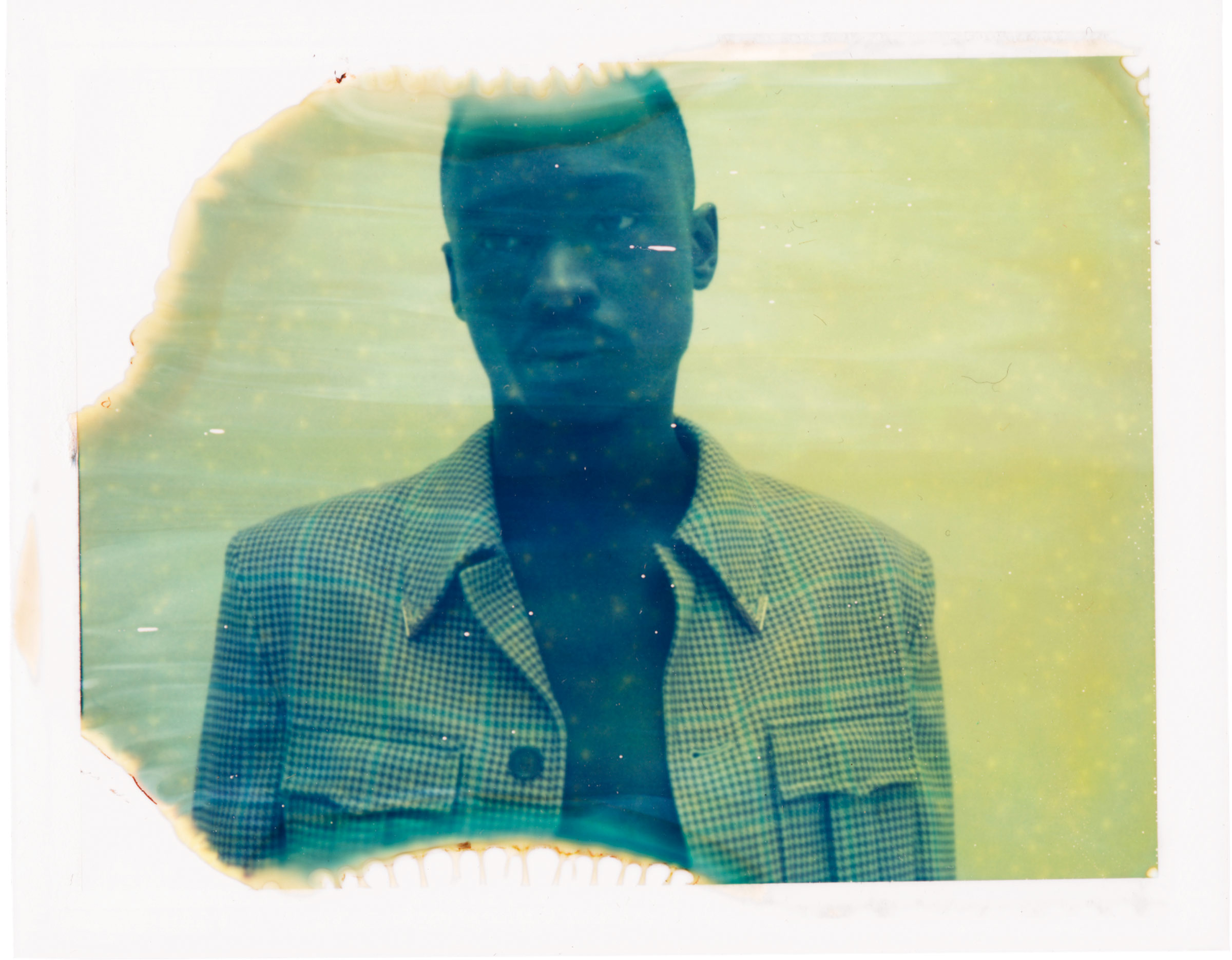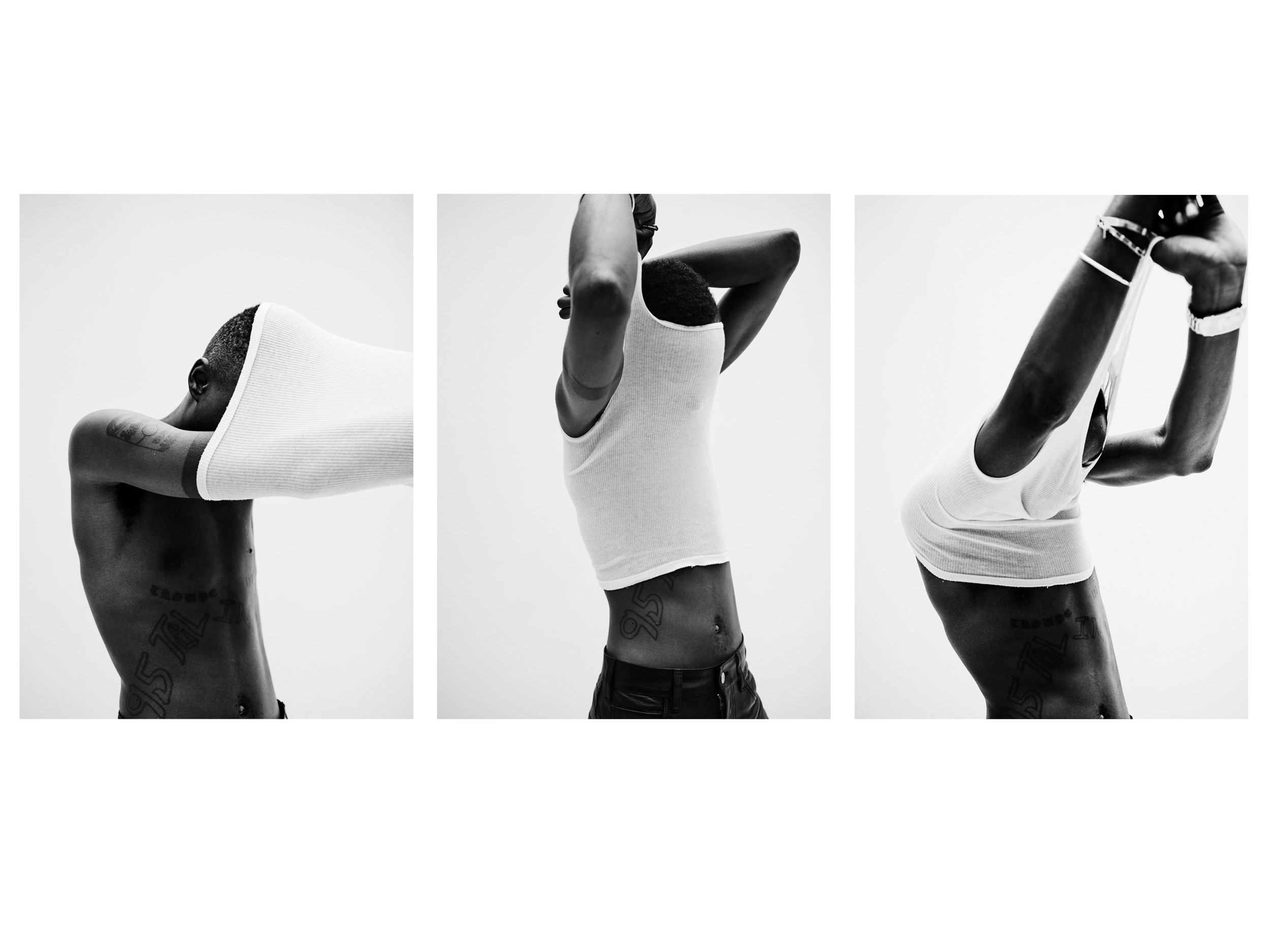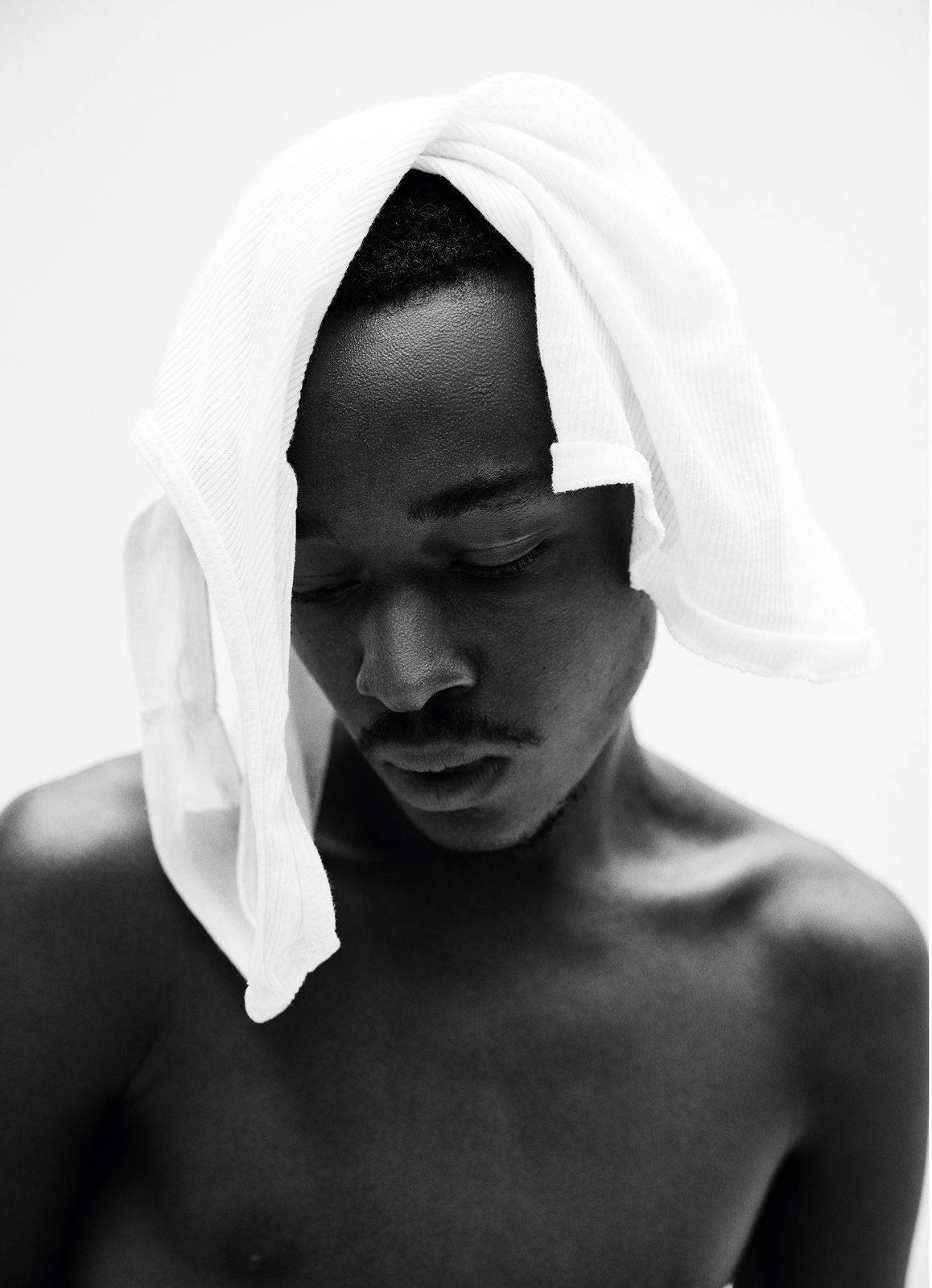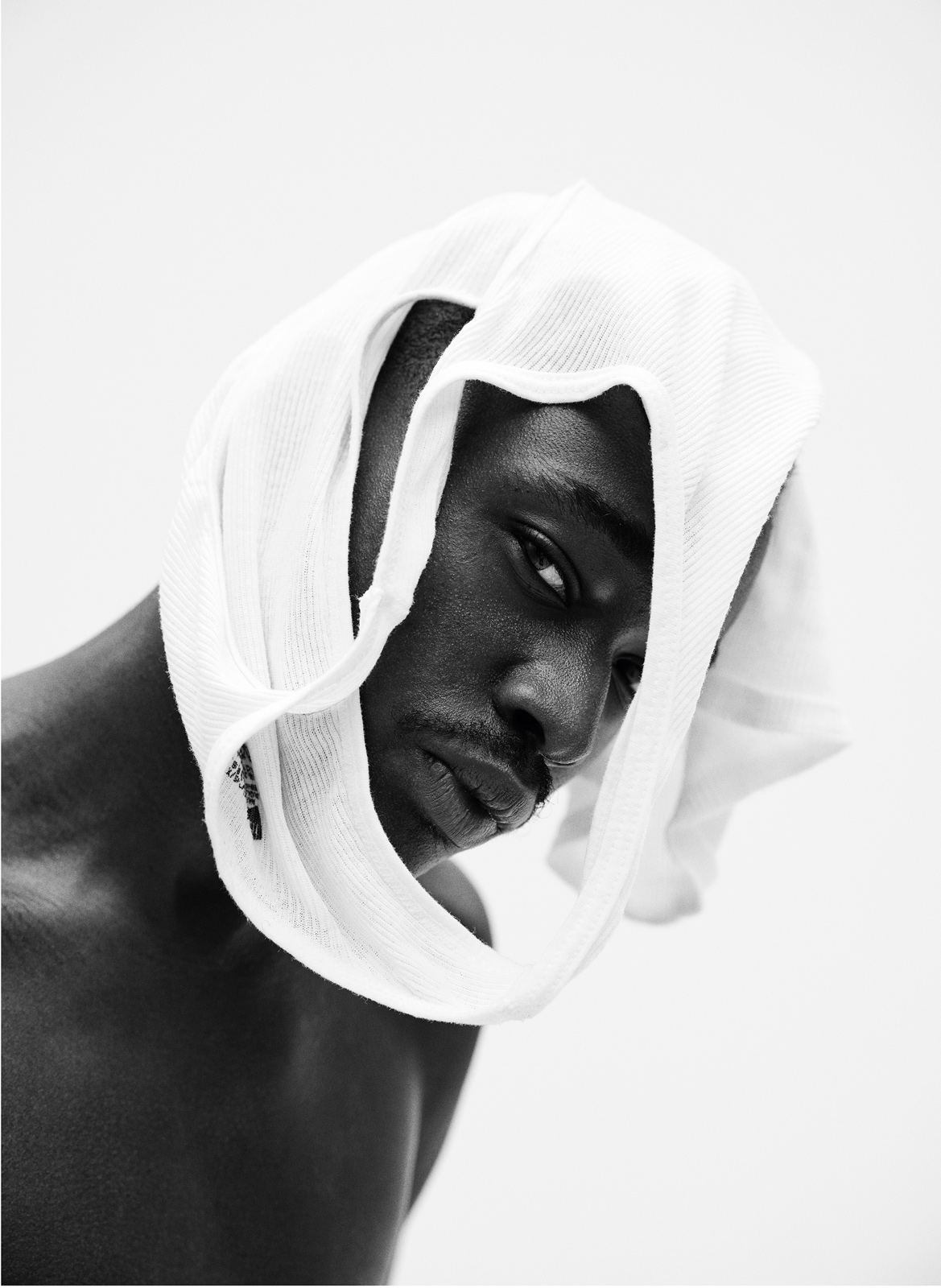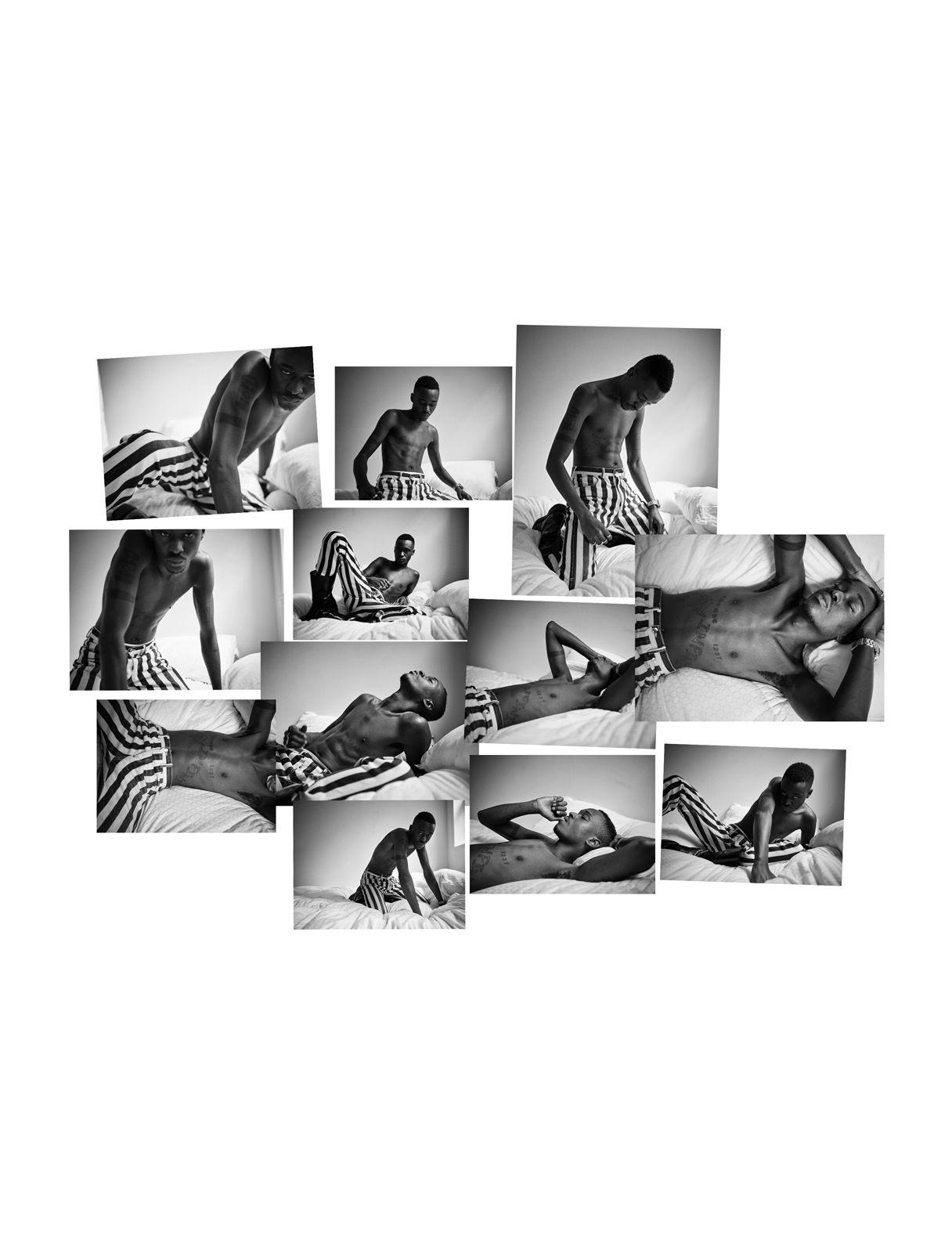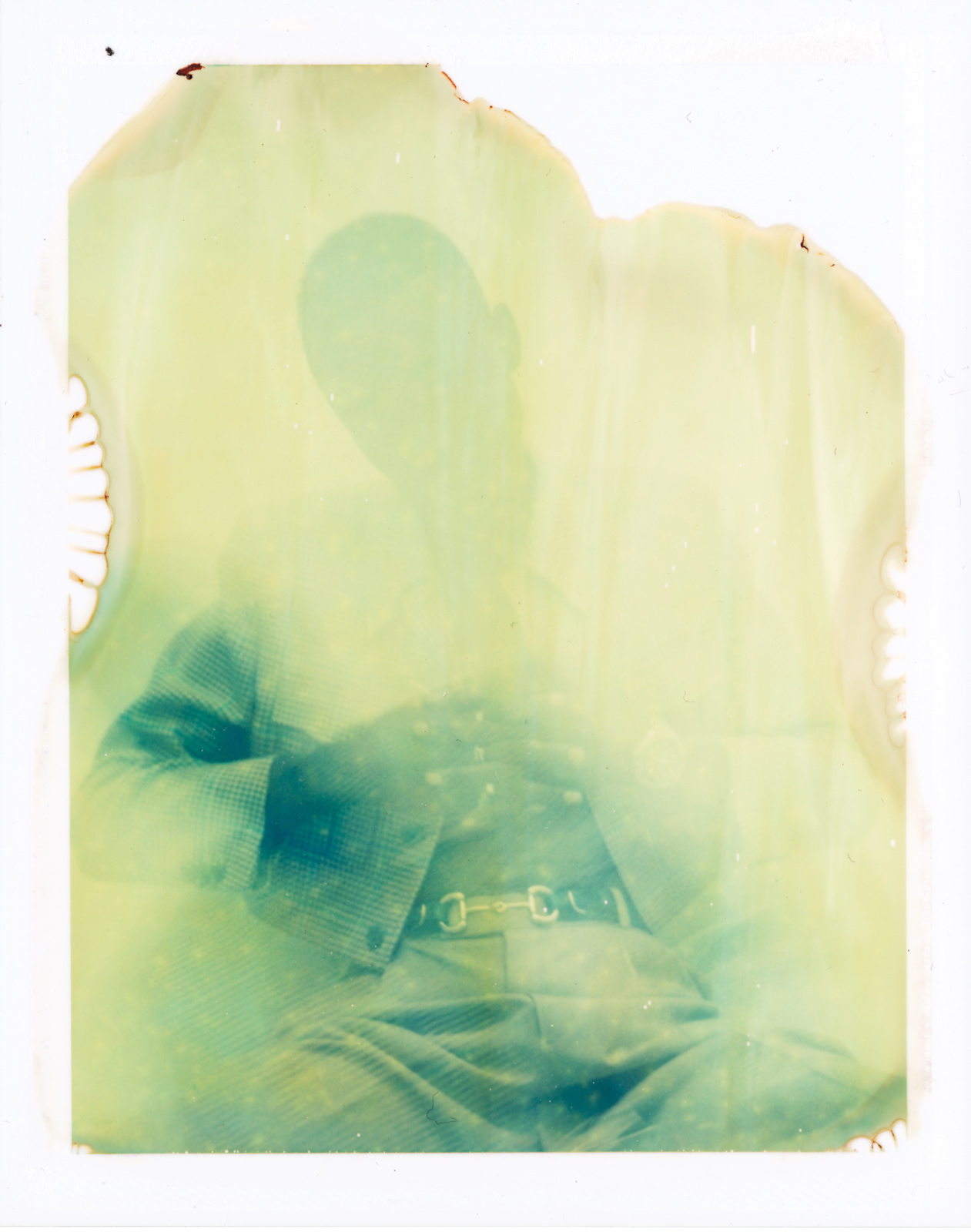
The ‘Moonlight’ actor divulges his plans to build an empire of his own
As we begin our Zoom call, I can hear Ashton Sanders’s low and rich baritone slip out from my laptop, but I can’t see him. Naturally, I assume it’s the Zoom gods at it again, trying to harsh the vibes, but Ashton assures me that he’s present. He turns on his video quickly to share that he’s not feeling well and would rather conduct the call without video. Perhaps one of the most admirable facets of Sanders’s personality, beyond his thoughtfulness, is his ability to set boundaries with a wisdom that far exceeds his age.
Born in Inglewood, California, but raised in Carson, California, Sanders’s acting career started when he was just 12 years old, after he asked his father if he could enroll at the Amazing Grace Conservatory in Central Los Angeles. It was in attending both Amazing Grace and his arts high school that he learned how to hone and dedicate himself to his craft—undoubtedly a skill that serves him to this day.
Having been a fan of Sanders since his breakout role in Moonlight, it’s hard not to focus on his highlight reel since 2016: He’s worked alongside his idol Denzel Washington, he’s a four-time guest at the Met Gala, and he’s even launched his own production company, 1237 Production, all before turning 30. It can be all too alluring to applaud the accolades of our heroes, rather than the diligence it has taken to make it to those destinations. In connecting with Ashton, though, the first thing you’ll learn is that front rows and afterparties have only been a small part of his vast journey into the public eye.
Today, Ashton spends half of his year living and working in New York. In our conversation, we discuss his love of the city, the evolution of his craft, and his desire to build his own empire.
Kimberly Drew: I know you’re from LA, a hardcore Angeleno. But you’ve had a broad cultural impact on a global scale. New York is, of course, a city well-known for culture. I wonder how your personal connection to New York started?
Ashton Sanders: In LA, we have Hollywood, we have television, we have film—that’s what the city is known for. But out here, we have Broadway. Growing up, I was really into theater—musical theater—so I always wanted to be in New York. There’s a narrative of New York that you see in media or television or film, and, growing up, that was the narrative that stuck. [My first time in New York] wasn’t until I was 20 years old; it was for a premiere for Moonlight. But now, it’s my second home. Six months out of my year, I live here. There’s something about the art and culture here that’s very different from Los Angeles—it’s more liberated and grounded and free and authentic.
Kimberly: One of the things I struggle with, especially as an adult in New York, is finding the room to focus on what I’m trying to accomplish. And then also, how to be present in the city—to be just, like, a human being, because New York is faster-paced than some other cities. How do you find the balance? How do you prioritize both what you need as a person and what you’re trying to get done?
Ashton: At this point in my life, no matter where I’m at in the world, I feel like I can’t allow myself to do too much. I have to stay grounded to stay focused. Although New York has a different pace, right now, in my life, I’m allowing myself to not force it.
But I think that [LA] cultivated my perspective and my priorities and the way that I move. [I’m usually working in] New York, so that’s number one—just keeping my head on my shoulders and not being pulled too far into the same, ‘Stay focused, man, you gotta make those sacrifices to get to where you want to go.’ I do miss out on a lot of things, like going out and congregating and shit, but I’m always, for the most part, trying to think about the bigger picture.
Kimberly: When you’re thinking about the bigger picture, what does that look like for you?
Ashton: I feel like I am building an empire for myself. I am thankful to have touched people with my work in the way that I have so far. But there’s so much more to do. I am somebody who can appreciate and live in the moment, but I just feel like there’s so much more to build on, so much more to do for myself and for what I’m giving the world, that’s always in the forefront of my mind—to keep things vague without going too introspective.
Kimberly: That’s so funny. I’m very into astrology. I’m like, That’s because you’re a Scorpio, right?
Ashton: Actually, yeah.
Kimberly: I feel like every Scorpio I know is like, ‘I’m trying to change the world, build an empire.’ There are so many incredible civil rights leaders who are Scorpios—just, like, eyes-on-the-prize-ass energy.
Ashton: You summed it right up—eyes on the prize, baby, you know?
“Acting is reacting life—not, like, ‘reacting,’ but reacting: We’re putting on an act to interpret real life in the most authentic way.”
Kimberly: It’s a hard thing to maintain. I feel like you have to build a certain level of sustainability into your practice or you burn out.
Ashton: I am somebody who’s always on my downtime. I chill very hard, chilling is essential to me. I work so much, I’m always traveling, I’m always doing something. When I have my off-time, I’m not inclined to go out and party and burn myself out even more. I take my time off to reset. On my weekends, I could be in the city, be on cool shit—but with those priorities that we were talking about, you got to make sacrifices. Summer is about to pop. But for right now, this is what it is, you know?
Kimberly: I feel you. Boundaries are, like, the only way to survive in New York.
Ashton: This city can eat you alive. It’s cliché to say, but it’s so true.
Kimberly: It’s just a fact. I always describe New York as like jumping onto a treadmill that’s already going. You’re immediately running, the day starts, and you just go, go, go, go, go.
Ashton: Yeah, man, that’s a great terminology for that.
Kimberly: At this point in your career, how are you continuing to grow in your craft? Do you work with a coach? Are there any people that you’re continuing to study?
Ashton: As I move through life and go through experiences, that adds to [what] I can pull from for character work. Acting is reacting life—not, like, ‘reacting,’ but reacting: We’re putting on an act to interpret real life in the most authentic way. That is the definition of acting to me, and I guess [I am] pulling from [my own] experiences. Recently, I started working with a coach on and off, but I’m so particular about who to work with—especially being in Los Angeles, [where], like, everybody is an acting coach. But I did get blessed to find an acting and movement coach. I went to school for acting at DePaul University, and a part of our practice was voice and speech acting classes, and also movement. We would study Linklater [voice progressions] and these different techniques. We would start our day doing yoga—sometimes just to be in our bodies. So that’s been essential, but it’s just ever-growing.
Kimberly: I’ve done some theater stuff—obviously not at the caliber that you’re working at. But I’m so fascinated by the different [aspects of it]. I was talking to Laverne Cox the other day, and she was telling me about animal work, which I’d never heard of before. It’s almost like athletes, how y’all train.
Ashton: That work is definitely something that can help you get into a character. I did that for Bobby Brown, for the Whitney Houston biopic. I had to really be in my body for that. But it is training. Acting definitely isn’t an easy job. When I get a script, I’m prepping for it months [in advance]. I [need to] understand and be true to this character. It’s no easy feat at all.
Kimberly: I think people see the end product, and it’s like, You have no idea.
Ashton: This show that I’m on now, most of our episodes don’t drop all at once. But we have 10 episodes. By the time it’s over, people are like, ‘We need more episodes.’ And it’s like, ‘Dude, it took us six months to film this. Y’all need to chill.’ But people don’t take into account what happens behind the scenes. Why would they?
Kimberly: I’ve never seen you take on something that was simple or basic. How do you dip into your characters, and then how do you dip out—to get back to some semblance of normal?
Ashton: I usually take a period of time to set aside to give to the character. You aren’t wrong about me being attracted to complex roles and complex stories. I can’t really pinpoint why I’m attracted to work like that. I guess because I’m, like, a complex guy myself. I’m not special. We’re all complex. And maybe that’s a part of it, too. It’s not as hard for me to jump out of a character as you’d think. Because I came out the gate doing complex roles, I kind of have a pattern that I follow to release myself from a character, like going on a super-tropical vacation. [When] I’m done filming a role, that’s something that I do to reward myself, but also to step away and get back into Ashton—to dress the way I dress, do the things that I like to do. It’s important to keep in mind that you are putting on a character and this isn’t you. People have different boundaries and different ways in which they go about putting on characters. Some people go full-on and get in a trance, and for them that really works— and I’m not knocking that, I think that’s really impressive. But, for me, it’s important to step away from the character with ease, especially when you’re doing something so complex. In the moments in between shooting or whatever, like I was saying, my downtime is so important for me—to have time to reset and get back to myself, if only for a couple of days, if I’m doing something so heavy, so complex, so deep. I’m working on it for three to five days out of my week. I’m going to need to step out of that shit at some point, for my mental well-being. I think that is second nature to me at this point.
Kimberly: Yeah, it makes so much sense. As a fan of yours, it’s very refreshing to hear, because you’re obviously still quite young, but have been acting for more than half of your life. And so I think it makes sense that you figured out these boundaries for yourself, because I imagine there’s so much pressure, and trying to find that balance is important.
On the note of the projects that you take on—or, you know, put yourself forth for—I was reading the interview that Donald Glover did with himself for Interview. And he was talking about this moment that we’re seeing in Black culture. There’s a way that so much of our culture has been brought to the forefront. And I wonder for you, in your practice, what do you make of this time? And how have you been taking this kind of shift?
Ashton: Obviously, there’s been a lot of chaos happening in the world. But I also feel like we’re living a renaissance and have been for the past, like, seven years. It’s still growing and changing in terms of Black art and Black culture being at the forefront. I believe, in any artistic renaissance, the greatest art comes from the chaos around us. And I find that funny. You know, all these groundbreaking works of art, and artists that we’ve been able to witness, and I have been able to befriend or come into contact with, are something special. To be a part of that is something special. We’re living in a chaotic world—and unfortunately, or fortunately—dope artists are coming through the chaos. Without art forms, shit would be more depressing than it can already be.
Kimberly: Oh, yeah. It would be bleak.
Ashton: Shit would be gray, man.
Kimberly: I feel like such a curmudgeon, too, because I’m like, Yes, there’s such incredible art, but it’s also because there’s this two-pronged thing that’s operating. Like, there is this opportunity for people who are doing amazing work to be seen, and there’s also an opportunity for people who are doing mediocre work to be seen.
Ashton: [There’s a] silver lining though: Look, if you know, you know, and the real gonna see the real. We just got to keep doing what we’re here to do, and not focus on anybody else. We each have different plans on this earth and mine is different from yours. Mine is different from the next actor’s. You just gotta keep that shit pushing.
Kimberly: Amen, amen. At this phase of your career, you still define yourself as an actor, but I’m wondering—what are some of the other, larger goals that you have in terms of your career? I know you have your production company. Are you also writing, directing, or even making visual art? What are some of the things that you’re trying to do in terms of expanding your practice?
“We’re living in a chaotic world—and unfortunately, or fortunately—dope artists are coming through the chaos. Without art forms, shit would be more depressing than it can already be.”
Ashton: I’m, like, multihyphenated in the way that my mind works, I wouldn’t cap myself as being an artist. I’m in different spaces in the art world through association, I guess, and I have a step in the fashion world. I think that’s something that I want [to be] more involved in. I haven’t been shy about talking about coming out with my own line, or collaborating with designers or whatever. In terms of directing and writing, thankfully, I feel like I’m in a space where it’s not comfortable. I’m at a good place, so I’m acting. I have a couple of films that I’m producing that I feel are going to be a good way to introduce my production company. I’m just trying to plant all these seeds right now. I don’t really have a time frame in which I expect these plants, or these trees, to grow. Because these are tall, strong trees. I’m just trying to figure out timing, but also, like, how to do things in an authentic way.
Kimberly: I love when people say the word ‘authentic,’ because I think it’s one of those words that’s so specific to the person. I wonder, when you’re saying ‘authentic’ for yourself, are there base requirements that you have in terms of when you take something on? Like, ‘These are my criteria, and if it doesn’t meet this criteria, I’m just not doing it’?
Ashton: I am a particular person in every way, and especially as an artist, because that’s so much a part of myself. I think I just know what I want. For the most part, in regards to art and in picking projects, I’m never trying to do something… I don’t know the word. But it’s never anything that’s—that’s ‘mid,’ you know? Is that the right word?
Kimberly: I think it’s the perfect word. I love ‘mid’ coming into the lexicon, because I’m like, You just know what it is.
Ashton: When it comes to the way that I dress or the way that I like to think about myself, I’m very logical.
You were talking about being authentic and what my definition of authentic is. I think it’s not as complex. I think it’s just, like, not forcing it and staying true and following intuition. I really home in on my intuition. I’ve really tapped into it.
Kimberly: Earlier, you were talking about your first perceptions of New York and you mentioned musical theater. Would you ever do musical theater again? Are we gonna get a Broadway moment?
Ashton: I’d be so down. I went to theater school, I grew up doing musicals, and particularly through a nonprofit in LA called Amazing Grace Conservatory—all these Black and Brown kids taking art seriously and putting on these shows year-round, like, really popping shows, really professional. I grew up loving theater, doing theater. New York and Broadway was kind of my endgame, like, ‘making it’ was something that was obtainable, but [that] I wasn’t tripping on. I love this craft so much, particularly in regards to doing theater. There was a time in which I saw myself being a theater actor, and I would have been fine with that. I do see myself getting back into theater at some point, whenever I can allow time for that, or whenever the opportunity presents itself in the right way, not forcing it. And yeah, man, you’re gonna see me dancing. I don’t think you’re ready for that.
Grooming Kristian Kanika at The Wall Group. Make-up Frank B at The Wall Group. Photo Assistants Brett Ross, Nathan Martin. Digital Technician Heather Sommerfield. Stylist Assistant James Kelley. Production Layla Néméjanski. Production Director Madeleine Kiersztan. Printing Arc Lab Ltd.


